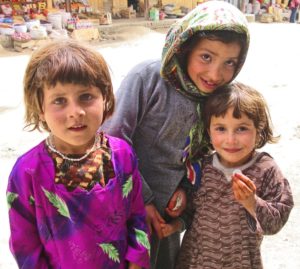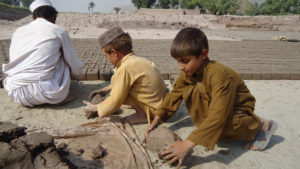The nation of Afghanistan is rich in a culture that dates back thousands of years. Their people are experiencing a resurgence of national pride.
Despite the struggles and difficulties that the nation faces, Afghanistan’s traditional culture and customs are alive and well. In addition, those who have left the country and settled in new lands are bringing this rich culture with them.
Read on to learn more about four important aspects of traditional Afghan culture.
The family
The most important unit within traditional Afghan culture is the family. Individual roles in a traditional family are usually divided along gender lines, with the man considered the breadwinner and the woman responsible for upkeep

Image courtesy Hoodsie DeQuincey | Flickr
of the home. Over the past decades, war and conflict caused the economy to grind to a halt. This led to a lack of jobs that caused upheaval and changes in traditional family roles. Some women now work outside the home.
Traditionally, marriages are arranged between families. Once married, the man will bring his wife to live with his family within his family home. This multi-generational living arrangement allows families to help each other, share responsibilities, and strengthens the importance of family ties.
Because family relationships are considered sacred, it is considered rude or even unacceptable for strangers to inquire about a person’s family members or the state of his home. While questions like “How are your wife and kids?” are part of a common greeting between business associates in the West, this question might be considered invasive in traditional Afghan culture.
Hospitality at home
Another important aspect of traditional Afghan culture is hospitality. When invited to visit an Afghan home, the visitor is often offered the best of everything the host has to offer. In doing so, the host is maintaining the honor of his family, and the guest is treated with the utmost respect. The guest is often served tea during their visit. It is considered rude to allow a guest to run out of food or drink, so the host will watch carefully and take care to continually fill the guest’s cup or plate.
Social etiquette
Due to a heightened sense of honor and an emphasis on traditional gender roles, intermingling of men and women more often takes place within families, rather than in the workplace or in public spaces. Men and women may work together, but they typically maintain boundaries that preserve the honor of each individual. Male and female

Image courtesy ILO in Asia and the Pacific | Flickr
business associates will not typically shake hands, nor make eye contact with each other. Professional women must maintain appropriate attire, wearing modest garments.
Outside of professional interactions, unrelated men and women are still discouraged from intermingling in traditional Afghan culture. Men who speak directly to women outside their families may be considered to be shaming the woman, and women do not typically initiate conversations with men. Unmarried men and women are usually not left alone together in a room, unless the door is open.
Meals
Mealtime in Afghanistan has its own set of rules that must be followed. Guests should remove their shoes upon entering a traditional Afghan home and be prepared to eat while sitting on cushions on the floor. The host will direct guests where to sit, and guests should accommodate their requests. It is impolite to sit with the bottom of your feet facing anyone, so sitting cross-legged is generally advised.
In a traditional Afghan home, meals are communal, with everyone eating from the same dish. There are no utensils; Afghans who follow traditional customs eat with their fingers, picking up food neatly with the tip of the fingers of the right hand. Left hands are considered unclean in Afghan culture, so eating with the left hand would taint the food for everyone. Empty plates are a sign to the host that the guest is still hungry, so empty plates will be re-filled repeatedly during a meal. To avoid this, leave some food on your plate.
Afghan culture is rich with traditions and cultural rituals that provide meaning, symbolism, and a shared sense of identity and values to the Afghan people. Perhaps one of the most compelling reasons to preserve the Afghan culture is due to the war, conflict, and upheaval that the nation has endured. In maintaining its historical and culturally significant heritage, the people of the country can carry on these traditions to future generations.

